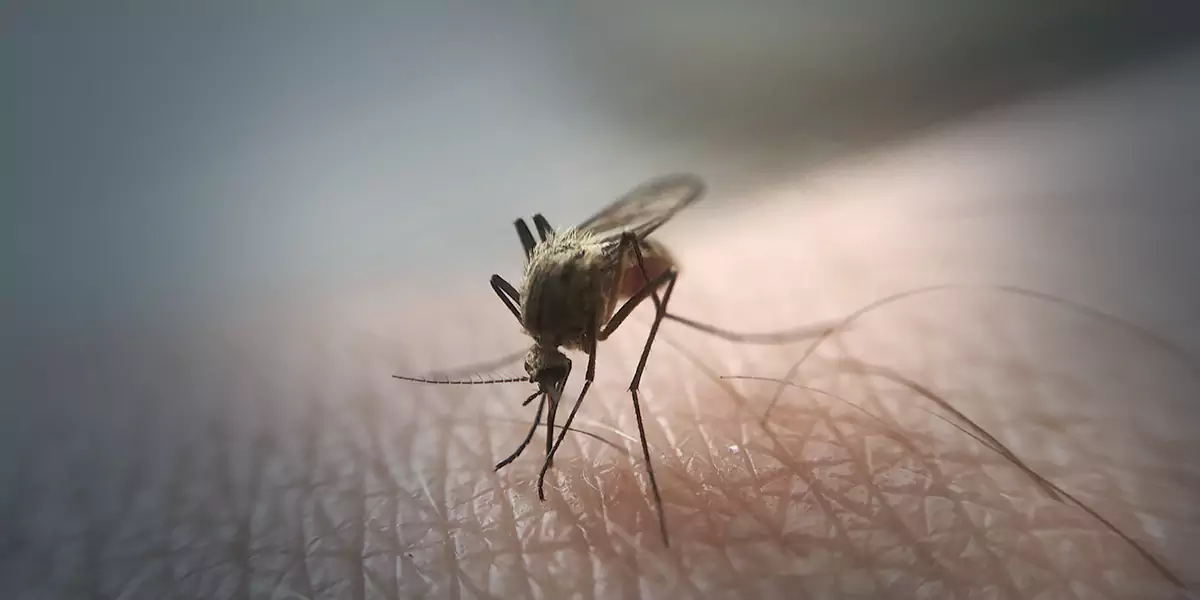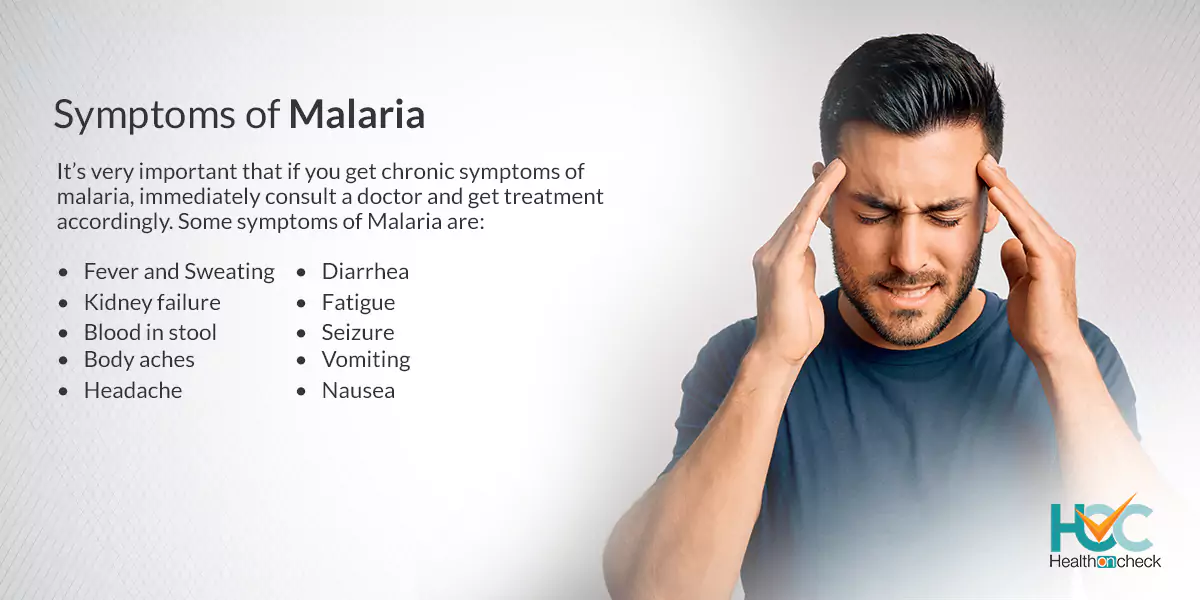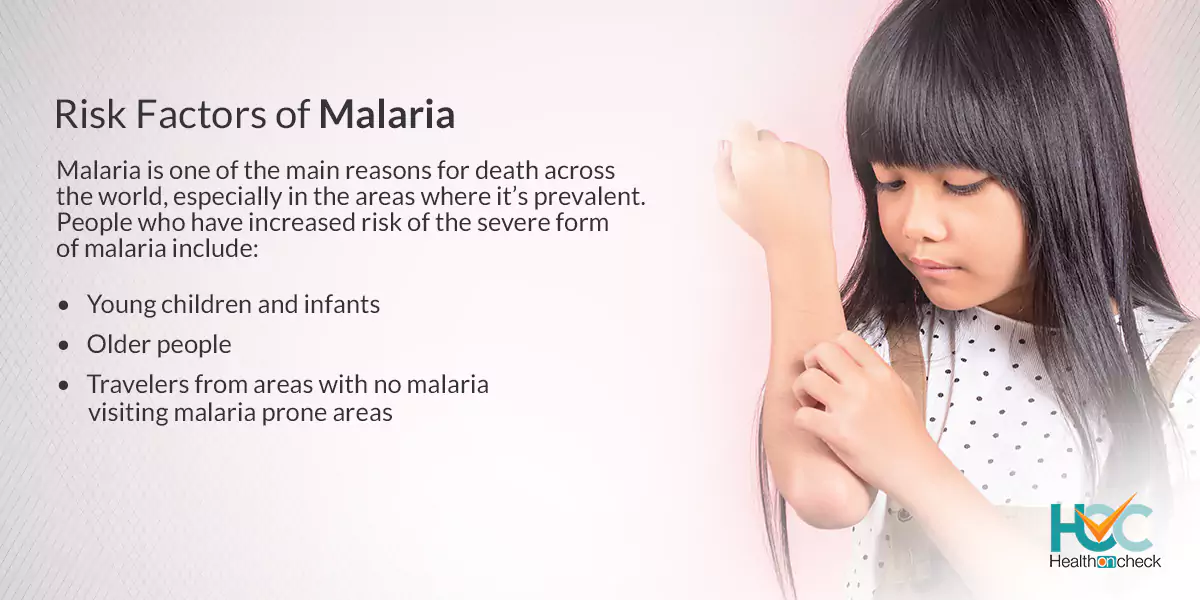All about Malaria

What is Malaria?
Malaria is a serious disease that is caused by parasites known as Plasmodium that transmits into the human body through the bites of infected female Anopheles mosquitoes. Malaria is one of the main causes of death all over the world and every year approximately 290 million people suffer from it out of which 400,000 dies. Though malaria is both preventable and curable, if proper treatment is not taken, it may lead to various health-related conditions like seizures, brain damage, trouble breathing, organ failure, and even death. Contrary to the common belief malaria is caused by parasites, not by a virus or bacteria.
What are the Different Types of Malaria?
Malaria is a parasitic disease where the plasmodium parasites the transmitted to the body via infected female mosquitoes known as anopheles mosquitos. There are four species of plasmodium parasites that cause malaria among humans and two among them are considered the most dangerous and life-threatening.
- Plasmodium Falciparum: This is the most common malaria parasite in Africa, Southeast Asia, and South America. The most malaria-related deaths in the world are because of this parasite and the reason is that these parasites multiply quite fast, which causes serious blood loss and clogged blood vessels.
- Plasmodium Vivax: This is the malaria parasite most commonly found outside of sub-Saharan Africa, especially in India and Latin America. This particular type of parasite can lie inactive, and many times it gets activated and infects the blood months or years after the mosquito bite. It causes severe malaria but death is very rare but causes ailments like diarrhea, fatigue, and fever.
- Plasmodium Malariae: This type of malaria causing parasite is found in the tropical and subtropical regions of Africa, Central and South America, Africa, and South East Asia mostly. It’s not considered life-threatening but it’s in the third position when it comes to the occurrence. Sudden chills and high fever are the main symptoms of malaria caused by Plasmodium Malariae.
- Plasmodium Ovale: It is the rarest type of malaria and is found mostly in the tropical West African region, including Liberia, Ghana, and Nigeria. It’s rare because here the parasite exists in the host’s body for long periods, sometimes up to years after the mosquito bite, and can occur suddenly.
Besides these four there is one more species of malaria inducing parasite known as Plasmodium knowlesi that infects primates and may get transmitted to humans but the reason behind the transmission remains uncertain.

What are the Symptoms of Malaria?
One of the most common problems of malaria is that its symptoms are quite similar to that of the flu and because of this many times people tend to ignore it. If not treated early and properly it may lead to coma which is known as cerebral malaria. Cerebral malaria is the reason behind 15% of deaths in children and nearly 20% of adult deaths.
It’s very important that if you get chronic symptoms of malaria, immediately consult a doctor and get treatment accordingly. Some symptoms of Malaria are:
- Headache
- Diarrhea
- Chills that shake the whole body.
- Fever and Sweating
- Fatigue
- Body aches
- Colour of the skin turning yellow (jaundice)
- Kidney failure
- Seizure
- Vomiting
- Nausea
- Chest pain, cough, and difficulty in breathing
- Blood in stool
- Headache and pain in muscles
What are the Causes of Malaria?
The cause of malaria is a type of parasite known as Plasmodium that is transmitted to humans through the bites of infected female Anopheles mosquitoes. Malaria is most prevalent in tropical regions, mostly in Africa, Asia, and some parts of South America because malaria causing parasites prosper in such types of climates and regions. Africa carries the most numbers of people suffering from malaria and after Africa, some other regions like South and Southeast Asia, Middle East Central and South America Oceania are also malaria prone regions.
In some cases, though rare, if a pregnant woman is suffering from malaria, it may be transmitted to the infant before or after birth. Though malaria is not contagious, it may transmit from one person to another because of reasons like blood transmission, sharing needles, organ transplant, etc.

What are the Risk Factors Associated with Malaria?
The biggest risk factor of malaria is living or visiting the regions where malaria is quite common such as the tropical and subtropical regions of Sub-Saharan Africa South, Southeast Asia Pacific Islands, Central America, and South America.
If you stay in such regions or even visit, take precautions to prevent mosquito bites as malaria is transmitted through mosquito bites. Apart from the region, a newborn baby may get it from a mother who is suffering from malaria while pregnant. The severity of risk factors chiefly depends on the local infrastructure to control malaria, seasonal changes in malaria rates, and the precautions taken to avert mosquito bites.
Malaria is one of the main reasons for death across the world, especially in the areas where it’s prevalent. People who have increased risk of the severe form of malaria include:
- Young children and infants
- Older people
- Travelers from areas with no malaria visiting malaria prone areas
In many countries especially poor and developing countries of Africa and Asia, the problem of malaria gets worse because of lack of access to preventive measures, medical care, information, and treatment.
A few varieties of the malaria parasite, which usually cause milder forms of the disease, may lie down in your body inactively for years and may occur after a long period even after years.
How is Malaria Diagnosed?
If you feel signs and symptoms of malaria, visit a doctor to diagnose if it’s malaria or normal flu because the signs and symptoms are the same for both conditions. The doctor will check your medical history and if you reside in a malaria prone area or travelled to such an area recently. He may ask you to go for some tests to diagnose the problem accurately. Some tests to diagnose malaria are:
- Blood Test: Blood test is the most common method of diagnosing malaria where some drops of your blood are taken and sent to the laboratory for further examination. The quantity of such parasites in blood keeps changing and because of this, the blood test is done more than one time and the presence of malaria inducing parasites continuously confirms malaria.
- Rapid Diagnostic Test: This test is done to diagnose malaria faster and here the blood taken from a prick on your finger is put on a test strip that changes colours and confirms whether you have malaria or not. But it can’t tell which parasite caused the infection and all results of the blood test are awaited to tell which malaria inducing parasite caused it and whether the infection is major or minor.
- Molecular Test: During a molecular test, the blood sample taken is checked minutely and confirms which parasite created the infection. It helps your doctor decide on the medicines to prescribe. This test is done when the blood has a low number of parasites but the symptoms are not slowing down or if the results of your blood smear are vague.
- Antibody Test: This test is taken to find out if you’ve had malaria before and searches for antibodies that show up in the blood after the infection.
- Drug Resistance Test: Some malaria inducing parasites are resistant to drugs and this test is carried out to check what type of medication will work.
What Are The Treatment Options For Malaria?
In October 2021, the World Health Organization recommended the world’s first malaria vaccine RTS,S/AS01 (RTS,S). This vaccine works against the Plasmodium Falciparum malaria parasite, the most spread and common among all malaria parasites. This vaccine helps to reduce the rate of severe and life-threatening malaria, especially in children. If used properly and extensively, it can save thousands of lives every year globally, mostly in malaria prone regions.
This vaccine is given in four doses and children as young as five months can get it. Researchers and scientists have estimated that this vaccine can avert one death for every 200 fully vaccinated children.
But depending wholly on this vaccine is not recommended and proper steps need to be taken like insecticide-treated bed nets, pesticides, and other remedies to prevent mosquitos to bite people.
If someone is infected with malaria, the treatment depends on the type of parasite you have been infected with along with the severity, the region where you live, and factors like pregnancy, age, etc. After checking all this, medicines are prescribed to treat malaria. Some common medicines prescribed by the doctors are:
- Chloroquine or hydroxychloroquine: It is prescribed when the condition is mild and you reside in a region where the parasites are not yet resistant to chloroquine.
- Artemisinin-based combination therapy (ACT): It’s a combination of two medicines as the name suggests and is used in milder cases or as a part of the treatment for serious cases.
- Atovaquone-proguanil, artemether-lumefantrine: It’s also a combination of more than one medicine and is mostly prescribed in the regions where the parasites have become resistant to chloroquine. They can be given to both adults and children.
- Mefloquine: It is given l when chloroquine does not affect the parasites anymore but it has side effects and is used only when there are no more options left.
- Artesunate: Given in the severe cases of malaria where the condition of the patient is serious.
What are the Complications of Malaria?
Malaria can be life-threatening, especially in Africa where the death rate from malaria is very high. In fact, according to the World Health Organization, nearly 94% of all malaria related deaths happened in Africa mostly among children under the age of 5.
Apart from death because of malaria, some of its other complications are:
- Cerebral malaria
- Breathing problems
- Organ failure mainly liver, kidney, and spleen
- Anemia (Excessive loss of red blood cells)
- Low blood sugar
- Coma
Living with Malaria
Despite being lethal sometimes, apart from flu-like conditions malaria does not create many problems and one can lead a normal life during the time of malaria but taking rest is advisable. Flu-like symptoms like shaking chills, headache, muscle aches, and tiredness may occur along with nausea, vomiting, and diarrhea. Malaria is not a long term disease and in the instances of mild malaria, it fades away after a few days of medication. It’s very important to take measures to avert the growth of mosquitos in your area and save yourself from mosquito bites to prevent malaria, especially if you are in a malaria prone area.
Whom to Consult?
Malaria can become life-threatening quite rapidly, so it’s vital to get medical assistance as soon as possible. Young children, infants, and pregnant women have high chance of getting the severe type of malaria. If you live or recently visited a malaria prone area and suffering from fever, visit a doctor and do the required tests to check whether you have malaria or not.




